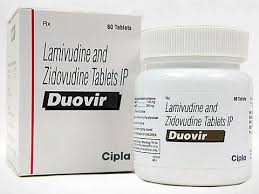Ataclip is a fixed-dose combination tablet that contains 150 mg of Atazanavir and 100 mg of Ritonavir. It is an antiretroviral medication used to treat human immunodeficiency virus (HIV) infection in adults and children.
Composition:
- Atazanavir: 150 mg
- Ritonavir: 100 mg
- Tablet core: croscarmellose sodium, lactose monohydrate, magnesium stearate
- Film coating: hypromellose, polyethylene glycol, titanium dioxide
Mechanism of Action:
Ataclip works by inhibiting the activity of HIV protease, an enzyme necessary for the virus to replicate. The combination of Atazanavir and Ritonavir helps to prevent the production of new viral particles, thereby reducing the amount of virus in the body.
Uses:
Ataclip is used to treat HIV infection in adults and children. It is recommended for patients who have not previously received antiretroviral therapy or who have failed other antiretroviral regimens.
Dosage:
The recommended dosage of Ataclip is one tablet once daily, taken with food.
Side Effects:
Common side effects of Ataclip include:
- Nausea
- Vomiting
- Diarrhea
- Fatigue
- Headache
- Abdominal pain
- Increased liver enzymes
- Increased blood lipids
Recommendation:
Ataclip should be used under the guidance of a healthcare professional. Patients should be monitored regularly for liver function tests, lipid profiles, and glucose levels.
Important Note:
- Ataclip is not recommended for use in patients with severe liver disease (Child-Pugh C).
- Patients with pre-existing kidney disease should be monitored closely for signs of kidney damage or toxicity.
- Patients taking other medications, including antiretroviral agents, may be at risk for interactions with Ataclip.
- The safety and efficacy of Ataclip in pregnant or lactating women have not been established.
- Ataclip is not recommended for use in children under 6 months of age.
- Patients should be counseled on the importance of taking concomitant therapy as prescribed by their healthcare provider.
- Patients with a history of Gilbert’s syndrome or other hepatic disorders should be closely monitored for signs of liver dysfunction.
It is essential to follow the recommended dosage and monitoring guidelines to ensure safe and effective treatment.




Reviews
There are no reviews yet.